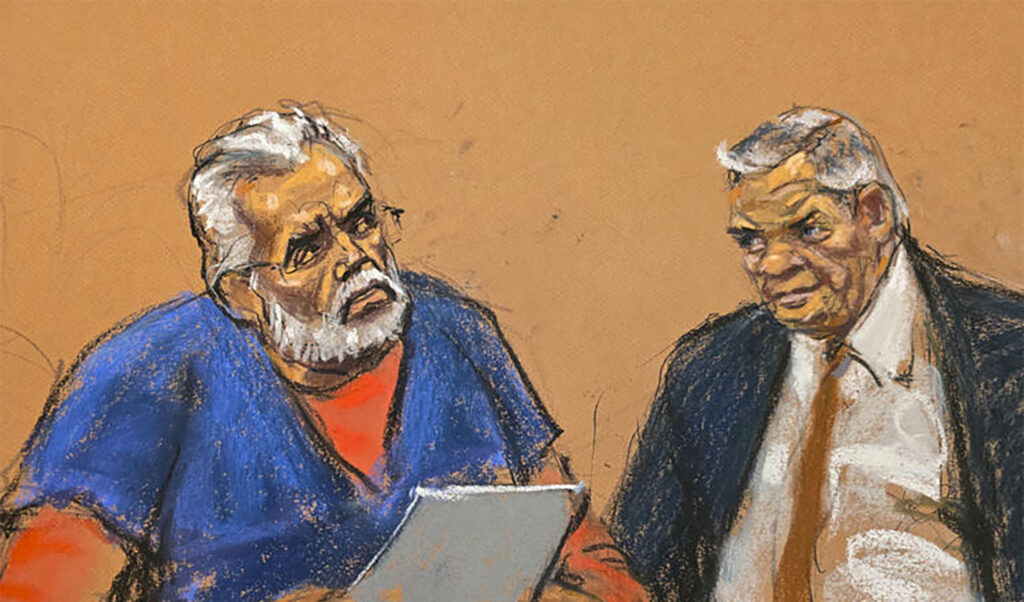Former Mexican cartel kingpin Ismael “El Mayo” Zambada will spend the rest of his life in a United States prison after pleading guilty August 25, 2025, to U.S. drug trafficking charges and saying he was sorry for helping flood the U.S. with cocaine, heroin and other illicit substances and for fueling deadly violence in Mexico. Under Zambada’s leadership and that of Joaquín “El Chapo” Guzmán, the Sinaloa cartel evolved from a regional player into the largest drug trafficking organization in the world, prosecutors say. “Culpable,” Zambada said, using the Spanish word for guilty, as he entered his plea in a Brooklyn courtroom, about 3,500 kilometers from Mexico’s Sinaloa state.
He acknowledged the extent of the Sinaloa operation, including underlings who built relationships with cocaine producers in Colombia, oversaw importing cocaine to Mexico by boat and plane and smuggling the drug across the U.S.-Mexico border.”
U.S. Attorney General Pam Bondi flew to New York to herald Zambada’s guilty plea as a “landmark victory,” saying at a news conference that he “will die in a U.S. federal prison, where he belongs.”
“This guy, ‘El Mayo,’ was living like a king,” Bondi said. ”Now he’s living like a criminal for the rest of his life.”
Bondi’s visit to Brooklyn underscored an anti-cartel crusade by the U.S. The U.S. has declared drug cartels to be terrorist organizations, positioned military assets off Venezuela and coordinated with the Mexican government to hand over several dozen high-ranking cartel officials for prosecution.
The kingpin’s legacy
Sought by U.S. law enforcement for more than two decades, Zambada was arrested in Texas last year when the drug lord arrived in a private plane with one of Guzmán’s sons, Joaquín Guzmán López. Zambada says he was kidnapped in Mexico and taken against his will to the U.S. Bondi noted Mexico’s opposition to the death penalty, which is a factor in its willingness to extradite suspects to the U.S. Although Zambada wasn’t extradited, she alluded to the nations’ understanding that “we cannot seek the death penalty” for cartel members sentenced in the U.S. Zambada is due to be sentenced January 13, 2026, to life in prison. He also faces billions of dollars in financial penalties.
Zambada describes his drug trade
Zambada appeared momentarily unsteady as he arrived in court; a marshal grabbed his arm to direct him to his seat. As Judge Brian M. Cogan described the plea agreement, the bearded ex-Sinaloa boss sat attentively, at times brushing his right hand through his white hair. Then, in an eight-minute speech, Zambada traced his involvement with illegal drugs to his teenage years, when — after leaving school with a sixth-grade education — he first planted marijuana in 1969. He said he went on to sell heroin and other drugs, but especially cocaine. From 1980 until his arrest in 2025, he and his cartel were responsible for transporting at least 1.5 million kilograms of cocaine, “most of which went to the United States,” he said.
Prosecutors said in the indictment that Zambada and the cartel also trafficked in fentanyl and methamphetamine. Zambada pleaded guilty to charges of engaging in a continuing criminal enterprise between 1989 and 2024 and racketeering conspiracy, which encompasses involvement in a number of crimes from 2000 to 2012. Guzmán was sentenced to life behind bars after his conviction in the same federal court in Brooklyn in 2019.

